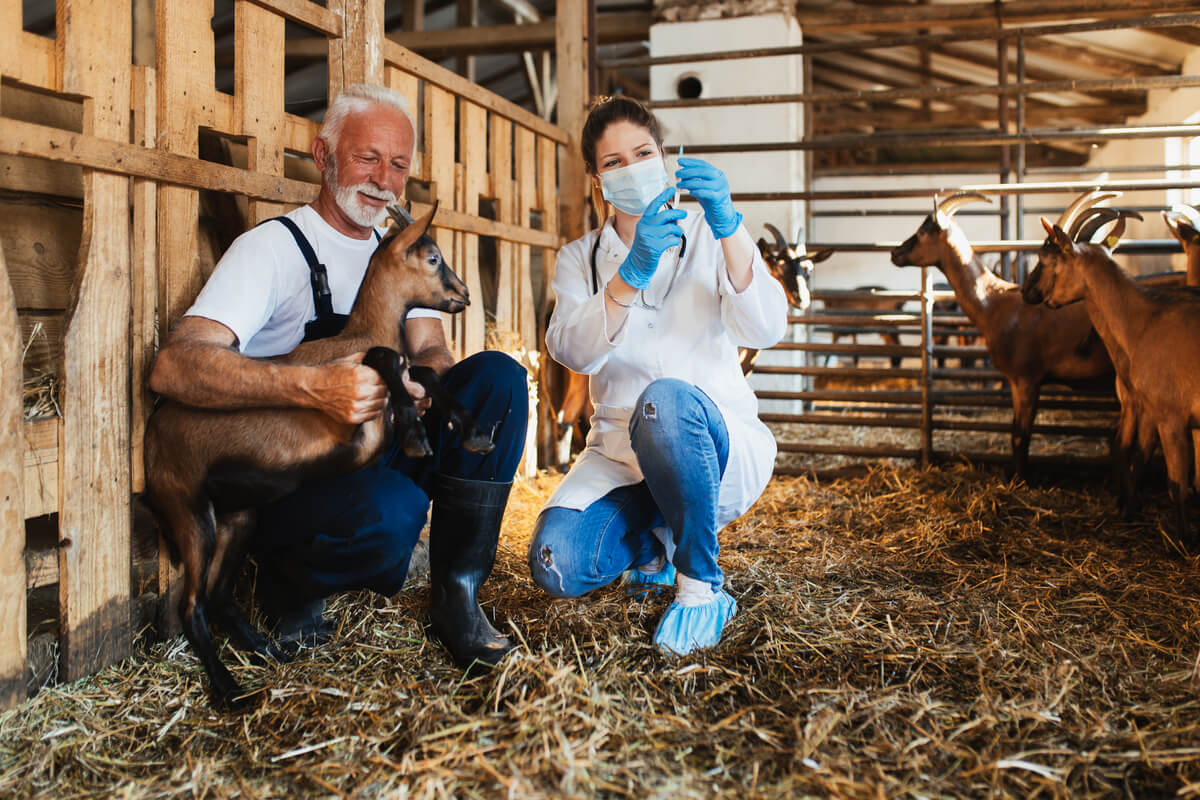Cryptosporidium in animals information
Home » Trending » Cryptosporidium in animals informationYour Cryptosporidium in animals images are available. Cryptosporidium in animals are a topic that is being searched for and liked by netizens now. You can Download the Cryptosporidium in animals files here. Find and Download all free photos and vectors.
If you’re looking for cryptosporidium in animals images information related to the cryptosporidium in animals keyword, you have pay a visit to the right blog. Our website frequently gives you suggestions for refferencing the maximum quality video and image content, please kindly hunt and locate more informative video content and graphics that fit your interests.
Cryptosporidium In Animals. Infected animals may not show any clinical signs but are still a source of environmental contamination. • cryptosporidium infection can cause serious problems on some farms and current statistics indicate this parasite is the commonest cause of scour in young calves in The infectious stages of the organism (oocysts) are shed in the faeces of affected individuals, survive in adverse environmental conditions and spread by direct contact or through contaminants. Cryptosporidium can infect a wide range of vertebrate hosts, including birds, reptiles, and mammals.
 Cryptosporidium. Causes, symptoms, treatment Cryptosporidium From dxline.info
Cryptosporidium. Causes, symptoms, treatment Cryptosporidium From dxline.info
Cryptosporidiosis is of considerable importance in neonatal ruminants, in which it is characterized by mild to severe diarrhea, lethargy, and poor growth rates. Cryptosporidium exists as several distinct species with different degrees of infectivity for animals and humans: The parasite frequently acts alone but the losses are more pronounced. Cryptosporidiosis is a highly prevalent gastrointestinal parasitic disease caused by protozoan species of the genus cryptosporidium that infect a wide range of animals, including people, throughout the world. Although infection of dogs and cats with cryptosporidium spp. Parvum is a cause of scour in young, unweaned livestock, although weaned and adult animals can also become infected.
Are intestinal coccidian parasites that are associated with disease in some infected hosts.
Cryptosporidiosis is a highly prevalent gastrointestinal parasitic disease caused by protozoan species of the genus cryptosporidium that infect a wide range of animals, including people, throughout the world. This is within the rangeof the percentagesimilarities between currently accepted cryptosporidium species In the united states, cryptosporidium spp. • cryptosporidium transmission to young calves can come from many sources including other calves, their dams, animal handlers, other animals and the environment. Idium are asymptomatic but severe clinical illness has been. Review open access cryptosporidium animal species in iran:
 Source: misanimales.com
Source: misanimales.com
Cryptosporidium can infect a wide range of vertebrate hosts, including birds, reptiles, and mammals. Is common, most infected animals are clinically normal. Infected animals may not show any clinical signs but are still a source of environmental contamination. Cryptosporidium is a microscopic protozoon parasite that causes acute, chronic or intermittent diarrhea in infected animals and people, a condition called cryptosporidiosis. Although the transmission from animals is possible, it is very uncommon, and cryptosporidium infection transmitted from sheep, horses, goats, and rodents has been rarely reported [12, 30, 31].
 Source: phys.org
Source: phys.org
Dna was amplified from 29.4% of cats with diarrhea.in cats, c. Cryptosporidium is a microscopic protozoon parasite that causes acute, chronic or intermittent diarrhea in infected animals and people, a condition called cryptosporidiosis. Are intestinal coccidian parasites that are associated with disease in some infected hosts. Idium are asymptomatic but severe clinical illness has been. Cryptosporidium is one of the most common zoonotic waterborne parasitic diseases worldwide and represents a major public health concern of water utilities in developed nations.
 Source: barfblog.com
Source: barfblog.com
Although the transmission from animals is possible, it is very uncommon, and cryptosporidium infection transmitted from sheep, horses, goats, and rodents has been rarely reported [12, 30, 31]. Cryptosporidium is an intracellular protozoan parasite, globally distributed and capable of infecting various vertebrate species, including humans as well as domestic and wild animals.cryptosporidium is increasingly gaining attention as a human and an animal pathogen mainly due to its dominant involvement in worldwide waterborne outbreaks. Cryptosporidium is a microscopic protozoon parasite that causes acute, chronic or intermittent diarrhea in infected animals and people, a condition called cryptosporidiosis. Cryptosporidiosis is a highly prevalent gastrointestinal parasitic disease caused by protozoan species of the genus cryptosporidium that infect a wide range of animals, including people, throughout the world. Cryptosporidium can infect a wide range of vertebrate hosts, including birds, reptiles, and mammals.
 Source: naturalspasupplies.co.uk
Source: naturalspasupplies.co.uk
Although infection of dogs and cats with cryptosporidium spp. • cryptosporidium transmission to young calves can come from many sources including other calves, their dams, animal handlers, other animals and the environment. Cryptosporidiosis is mainly a problem in neonatal farm animals. Cryptosporidium exists as several distinct species with different degrees of infectivity for animals and humans: Cryptosporidium was the aetiological agent in 60·3% (120) of the waterborne protozoan parasitic outbreaks that have been reported worldwide between 2004 and 2010, (baldursson and karanis, reference baldursson.
 Source: criticalcaredvm.com
Source: criticalcaredvm.com
Review open access cryptosporidium animal species in iran: • cryptosporidium transmission to young calves can come from many sources including other calves, their dams, animal handlers, other animals and the environment. The parasite frequently acts alone but the losses are more pronounced. Cryptosporidium was the aetiological agent in 60·3% (120) of the waterborne protozoan parasitic outbreaks that have been reported worldwide between 2004 and 2010, (baldursson and karanis, reference baldursson. Although the transmission from animals is possible, it is very uncommon, and cryptosporidium infection transmitted from sheep, horses, goats, and rodents has been rarely reported [12, 30, 31].
 Source: researchgate.net
Source: researchgate.net
Cryptosporidiosis is common in young livestock, especially cattle and sheep, although pigs, goats, horses and deer can be infected. Cryptosporidium species in australian animals 1675. Cryptosporidiosis is mainly a problem in neonatal farm animals. Cryptosporidium is a microscopic protozoon parasite that causes acute, chronic or intermittent diarrhea in infected animals and people, a condition called cryptosporidiosis. • cryptosporidium infection can cause serious problems on some farms and current statistics indicate this parasite is the commonest cause of scour in young calves in
 Source: petmd.com
Source: petmd.com
Cryptosporidiosis is of considerable importance in neonatal ruminants, in which it is characterized by mild to severe diarrhea, lethargy, and poor growth rates. Cryptosporidium can infect a wide range of vertebrate hosts, including birds, reptiles, and mammals. Although infection of dogs and cats with cryptosporidium spp. Cryptosporidiosis is common in young livestock, especially cattle and sheep, although pigs, goats, horses and deer can be infected. Cryptosporidium muris, commonly found in rodents, has been identified in bilbies (macrotis lagotis) (warren et al.
 Source: dxline.info
Source: dxline.info
Cryptosporidium can infect a wide range of vertebrate hosts, including birds, reptiles, and mammals. • cryptosporidium transmission to young calves can come from many sources including other calves, their dams, animal handlers, other animals and the environment. Review open access cryptosporidium animal species in iran: 28 diarrhea is generally more common in young animals. Parvum is a cause of scour in young, unweaned livestock, although weaned and adult animals can also become infected.
 Source: youtube.com
Source: youtube.com
Are intestinal coccidian parasites that are associated with disease in some infected hosts. Dna was amplified from 29.4% of cats with diarrhea.in cats, c. This is within the rangeof the percentagesimilarities between currently accepted cryptosporidium species Resolutions to those issues should greatly improve our understanding of the species structure and transmission of cryptosporidium in humans and animals. Assay results and the presence of diarrhea.
This site is an open community for users to share their favorite wallpapers on the internet, all images or pictures in this website are for personal wallpaper use only, it is stricly prohibited to use this wallpaper for commercial purposes, if you are the author and find this image is shared without your permission, please kindly raise a DMCA report to Us.
If you find this site serviceableness, please support us by sharing this posts to your own social media accounts like Facebook, Instagram and so on or you can also bookmark this blog page with the title cryptosporidium in animals by using Ctrl + D for devices a laptop with a Windows operating system or Command + D for laptops with an Apple operating system. If you use a smartphone, you can also use the drawer menu of the browser you are using. Whether it’s a Windows, Mac, iOS or Android operating system, you will still be able to bookmark this website.
Category
Related By Category
- Dyson hoover v6 animal information
- Creative names for stuffed animals information
- Cute anime dog information
- Author of my family and other animals information
- Best free anime app information
- Anime laptop backgrounds information
- Anime forest background information
- Bleach blood war arc anime information
- Cheltenham animal shelter information
- Anime mugen games download information